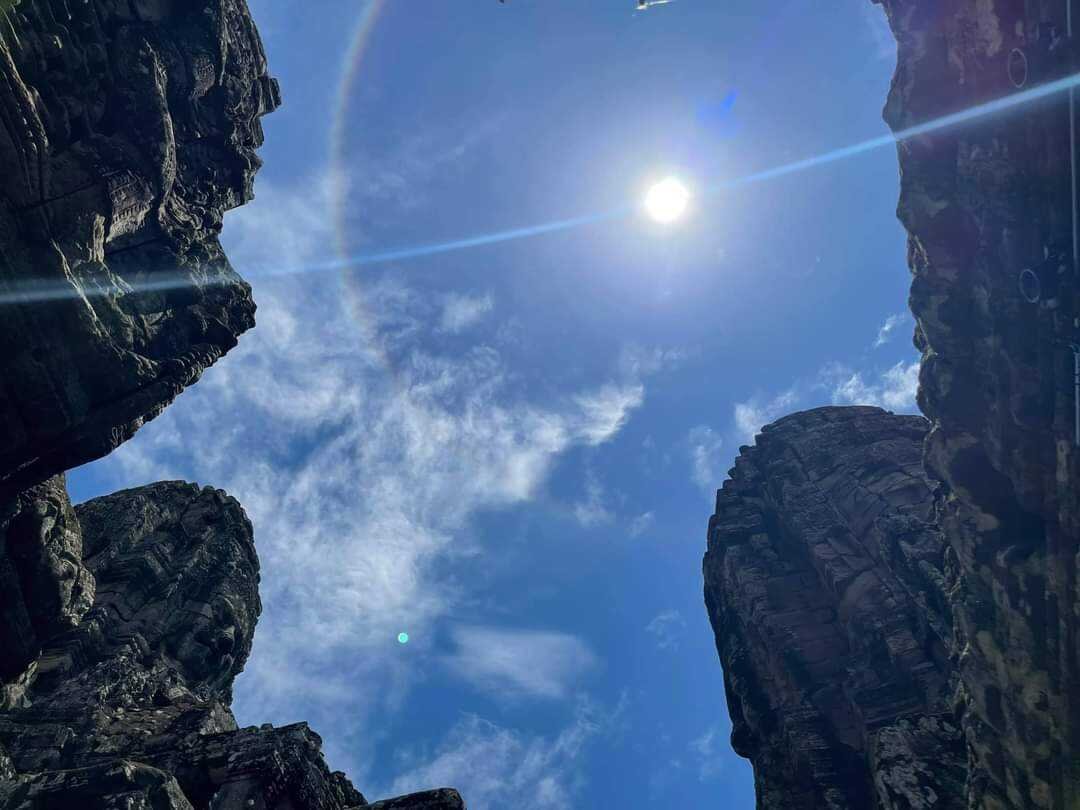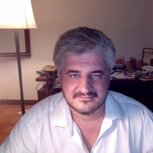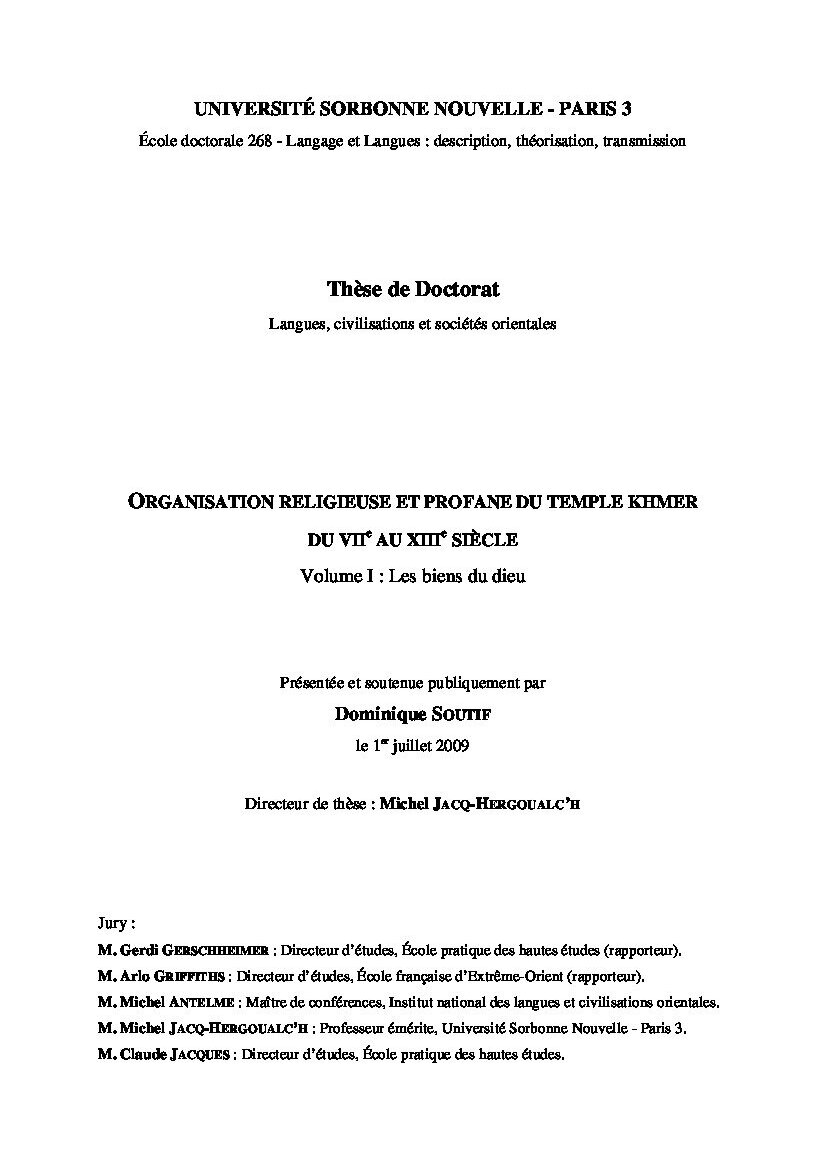Organisation religieuse et profane du temple khmer du VIIeme au XIIIeme siècle | The Khmer Temple in the 7th-13th centuries, Religious and Secular Organization
by Dominique Soutif
The ceremonial and social role of the temple space in early Cambodia reconstructed through inscriptions

- Publication
- Thèse de Doctorat Langues, civilisations et sociétés orientales, Univ. Sorbonne Nouvelle Paris III, 2 vols. (under the direction of Michel JACQ-HERGOUALC’H)| via HAL, NNT 2009PA030074
- Published
- July 2009
- Author
- Dominique Soutif
- Pages
- 638
- Language
- French
pdf 5.0 MB
The temple as a space for the gods yet also for the people: liturgical offerings became a kind of ‘marketplace’ where ‘the goods of god’ (devadravya), while keeping their sacred dimension, were gathered to benefit to the entire community, including its secular part.
The study, doctoral thesis by one of the most preeminent contemporary epigraphists of the Khmer civilization, is also highly valuable as ‘laymen’ can follow step by step the working process of deciphering and and interpreting — or re-interpreting, in several instances — Khmer inscriptions.
In recent years, the author has contributed to expanding and perfecting the Khmer inscription Corpus.
Photo: Angkor, Year 2021 (by Choulay Mech)
Tags: Angkorean society, temples, inscriptions, epigraphy
About the Author

Dominique Soutif
After becoming a Doctor in Indian Studies at Université Paris III — his thesis dealt with the Religious and Secular Organization of the Khmer Temples between the 7th and 13th centuries –, Dominique Soutif joined the EFEO Siem Reap Branch in 2009, which he supervised until 2019.
An archaeologist,epigraphist and associate professor with EFEO, he has developed several programs for the study of the Yasovarman I’s ashrams — with Julia Estève (EPHE) –, and joined the Program for Khmer Inscriptions Corpus (EFEO/EPHE), the inventory of Ancient Cambodia epigraphic resources initiated by George Coedès and Claude Jacques.
Since May 2019, Dominique Soutif is part of the DHARMA project ERC 809994, a 6‑year field-study and documentation program financed through the European Union’s Research and Innovation Programme Horizon 2020.

